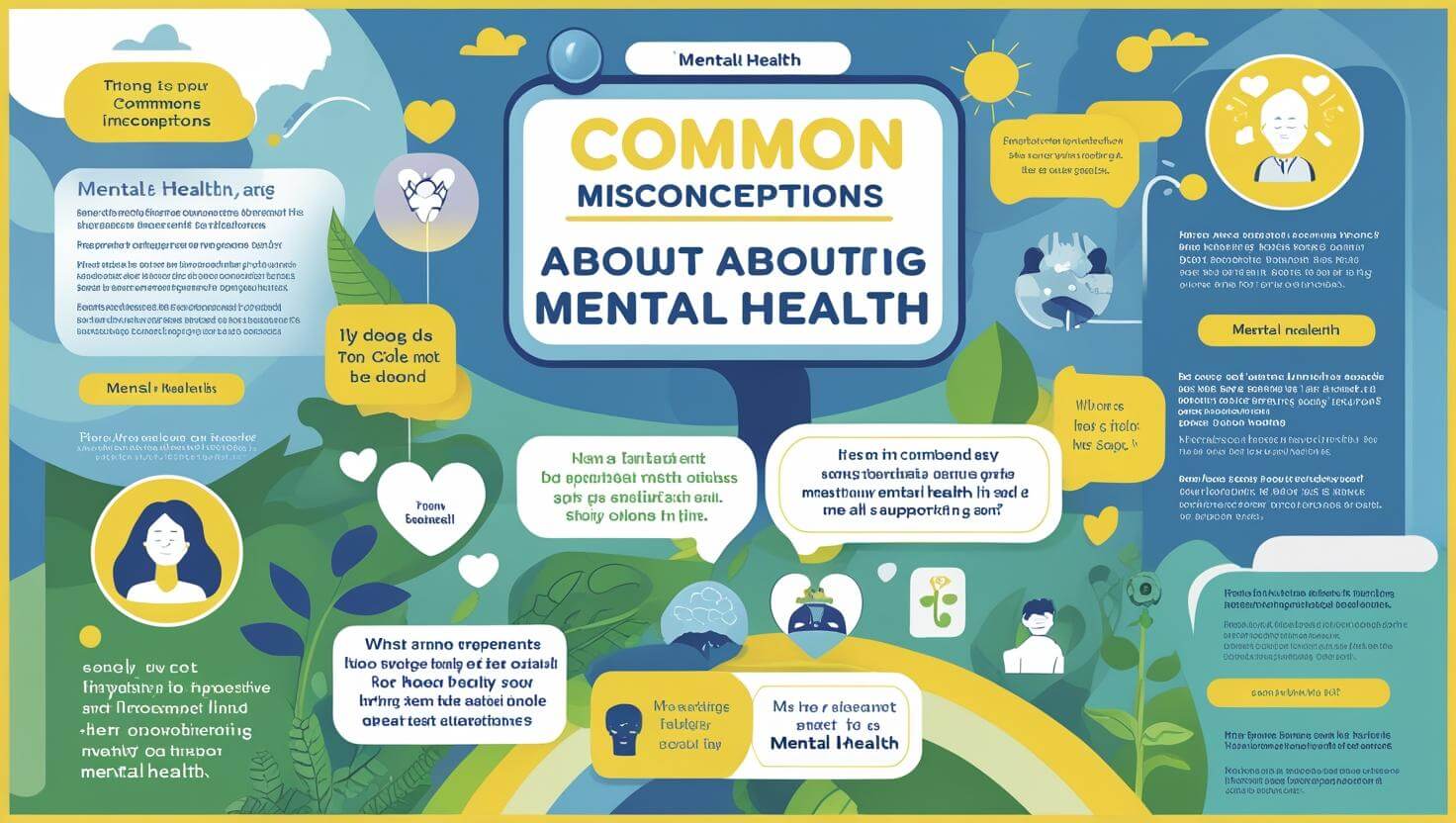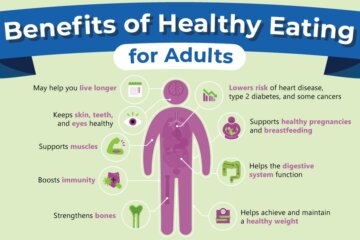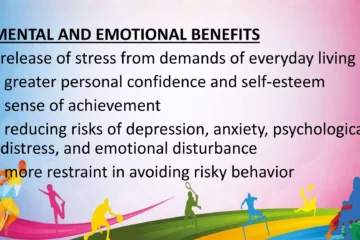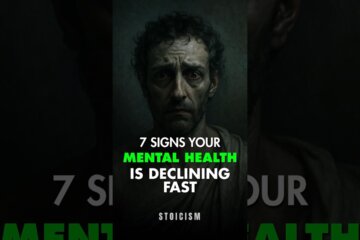“What are the Common Misconceptions About Mental Health?”
Are you curious about mental health but feel overwhelmed by all the mixed messages out there? You’re not alone.
Many people hold misconceptions about mental health, and these misunderstandings can shape how we view ourselves and others. Have you ever wondered if some of what you’ve heard might not be entirely accurate? By uncovering the truth, you can empower yourself and those around you to foster a more informed and supportive community.
Imagine being able to spot these common misconceptions and replace them with facts. Wouldn’t that be a game-changer for your personal growth and the way you connect with others? Stick around as we debunk these myths and shed light on what mental health really means. Your perspective might just shift in a way you never expected.
Mental Health Vs. Mental Illness
Many confuse mental health with mental illness, thinking they’re the same. Mental health involves emotional well-being, while mental illness refers to disorders. Believing everyone with mental health issues has a disorder is a common misconception. Understanding the difference helps in reducing stigma and promoting awareness.
Understanding the difference between mental health and mental illness is crucial for addressing misconceptions. Mental health refers to your overall psychological well-being, much like physical health pertains to your body. It’s about how you manage stress, relate to others, and make decisions. On the other hand, mental illness involves specific conditions that affect your mood, thinking, and behavior, like depression or anxiety disorders. Knowing this distinction can help you approach mental health with more empathy and clarity.
What Is Mental Health?
Mental health is an integral part of your life. It influences how you think, feel, and act every day. Good mental health doesn’t mean you’re always happy. It means you can manage your emotions effectively and bounce back from challenges. You might have days when you feel down, but overall, you’re able to cope with life’s ups and downs. Think about your own experiences. Do you find it easier to handle stress when you’re mentally fit?
Defining Mental Illness
Mental illness is a condition that disrupts your thinking, feeling, mood, or behavior. These disorders can be mild or severe, temporary or chronic. Imagine waking up and feeling unable to face the day. That’s the reality for many living with mental illness. Conditions like depression or schizophrenia aren’t just phases but require professional care and support. Have you noticed someone struggling but unsure how to help them?
The Impact Of Misconceptions
Misconceptions can worsen the stigma surrounding mental health and illness. People often mistake mental illness for weakness or a character flaw. This can discourage those affected from seeking help. Consider how you react when someone shares their mental health struggles. Are you supportive, or do you hold back because of preconceived notions? It’s important to challenge these misconceptions and promote understanding.
Why Knowing The Difference Matters
Recognizing the difference between mental health and mental illness empowers you to support yourself and others better. If you’re aware of what constitutes good mental health, you can cultivate habits that enhance your well-being. Understanding mental illness allows you to offer compassion and encourage treatment without judgment. What steps can you take today to improve your mental health and support those around you?
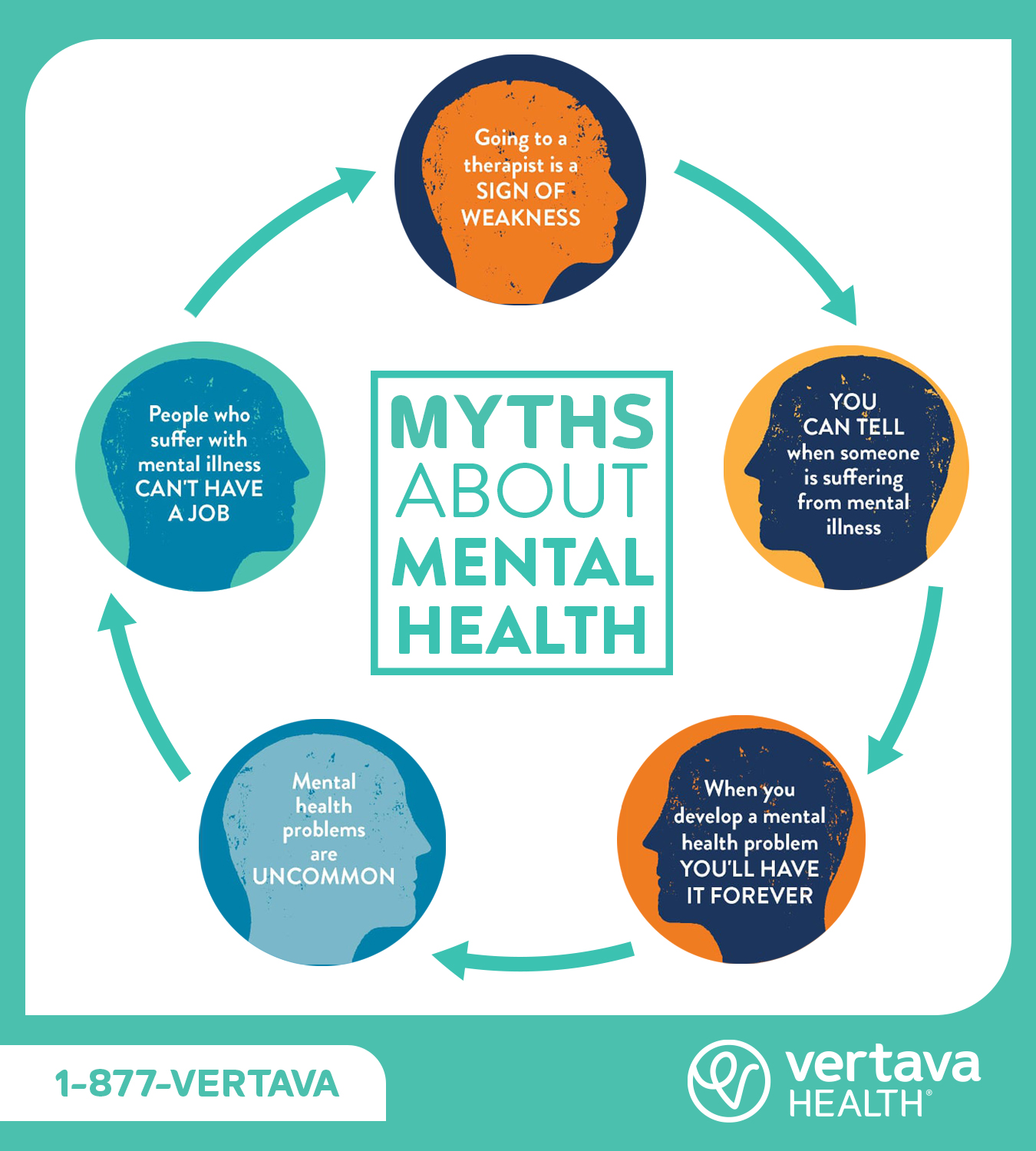
Credit: vertavahealth.com
Stigma And Myths
Many believe mental illness is rare or a sign of weakness, but it’s common and affects many people. Others think therapy is only for severe issues, yet it benefits everyone. Misunderstandings like these create stigma, making it hard for people to seek help.
Stigma and myths about mental health have persisted for far too long, creating barriers for those who need support. These misconceptions can lead to feelings of shame and prevent people from seeking help. By understanding and challenging these myths, you can contribute to a more compassionate and informed society.
Mental Health Is A Choice
One common misconception is the belief that mental health is a matter of choice. Some people think you can simply “snap out of it” or decide to be happy. This is not true. Mental health is influenced by a variety of factors, including genetics, environment, and life experiences. Consider this: if you’ve ever had a broken leg, you wouldn’t expect to walk normally without a cast or medical attention. Mental health works similarly; it often requires professional support and treatment. Understanding this can help you see mental health as a serious issue, not just a matter of willpower.
Only Weak People Struggle
Another damaging myth is that only weak individuals face mental health challenges. This belief can prevent people from talking about their struggles due to fear of judgment. Yet, mental health issues can affect anyone, regardless of their strength or resilience. Think about the strongest person you know. Even they might face anxiety, depression, or other mental health concerns. Recognizing this can make you more empathetic and supportive to those around you. Everyone has their battles, and seeking help is a sign of courage, not weakness. Have you ever hesitated to share your struggles because of these myths? By challenging such misconceptions, you can pave the way for more open conversations about mental health.
Perception Of Therapy
Therapy often faces misconceptions like being only for severe issues or a sign of weakness. Many believe it’s ineffective, overlooking its benefits for mental health improvement. Understanding therapy as a supportive tool can help dispel these myths and encourage seeking help when needed.
The perception of therapy is often clouded by misunderstandings that can prevent individuals from seeking the help they need. You might have heard people say that therapy is only for those who are struggling with severe mental issues or that it’s a sign of personal failure. These beliefs are not only incorrect but also limit the potential benefits that therapy can offer to anyone. Let’s address these misconceptions head-on and uncover the truth about therapy.
Therapy Is For The Mentally Ill
One common myth is that therapy is exclusively for those diagnosed with mental illness. This couldn’t be further from the truth. Therapy is beneficial for anyone seeking personal growth, better relationships, or coping strategies for life’s challenges. Consider how you might visit a doctor for a regular check-up. Similarly, therapy is an excellent resource for maintaining mental wellness, just like physical health. Some people seek therapy to deal with everyday stress, improve communication skills, or set personal goals. A friend once shared how therapy helped her manage work-related stress and improve her relationships at home. Her experience shows that therapy is a valuable tool for navigating the complexities of life, regardless of whether you have a mental illness.
Therapy Shows Failure
Another misconception is that going to therapy means you’ve failed in some way. It’s easy to fall into the trap of thinking you should be able to handle everything on your own. But consider this: if you sprain your ankle, do you think you’re a failure for seeking medical help? Of course not. Therapy is similar—it shows strength and a commitment to self-improvement. Seeking therapy is a proactive step toward becoming the best version of yourself. It demonstrates self-awareness and a desire to learn new coping strategies. If you’re worried about what others might think, remember that prioritizing your mental health is a personal decision that benefits you and those around you. Have you ever considered the benefits you might gain from therapy? It’s time to challenge these misconceptions and embrace the potential for growth and healing.
Medication Misunderstandings
Medication misunderstandings often cloud the conversation about mental health. Many people hold misconceptions about how these medications work. This can lead to fear or mistrust. Let’s explore some common myths about mental health medications.
Medications Are A Quick Fix
Some believe medications offer an instant solution. This is not true. Medications help manage symptoms. They are not a cure. It takes time to see effects. Regular follow-ups with a doctor are essential. Adjustments may be needed. Patience is key. Recovery is a journey.
Medications Change Personality
Another myth is that medications alter personality. They do not. Medications aim to balance chemicals in the brain. This helps manage mood and thoughts. A person remains themselves. The goal is to improve quality of life. Not change who they are.
Workplace Mental Health
Workplace mental health is crucial for a thriving work environment. It affects both employees and employers. Yet, many misconceptions exist. These misconceptions hinder progress and understanding. Addressing them can improve productivity and well-being. Let’s explore some common misconceptions.
Mental Health is Not a Workplace Issue
Some believe mental health belongs outside the workplace. This view limits support for those in need. Mental health affects job performance and relationships. Ignoring it can lead to burnout and high turnover. Employers should foster open conversations. Create a supportive culture for all employees.
Stress Equals Productivity
Stress is often seen as a productivity booster. But chronic stress can harm health and efficiency. It leads to fatigue and errors. A balanced approach enhances productivity better. Encourage breaks and manageable workloads. Promote a healthy work-life balance.
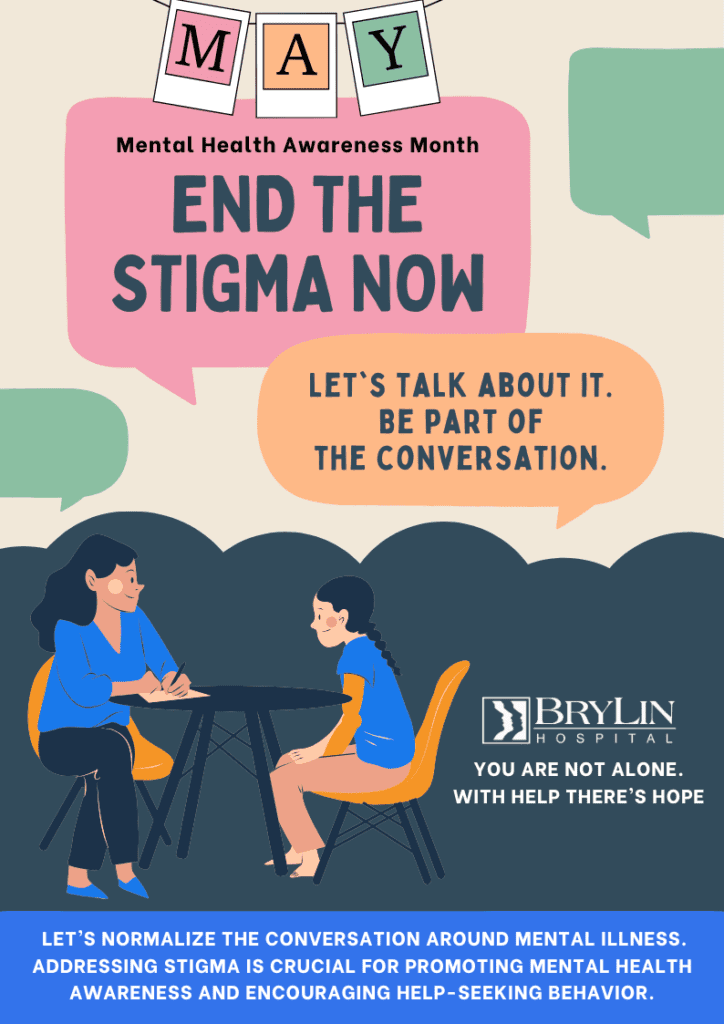
Credit: www.brylin.com
Mental Health In Children
Understanding mental health in children is crucial for nurturing their development. Yet, misconceptions often cloud our judgment, causing us to overlook or dismiss vital signs. As you read on, consider how these myths might shape your views and actions.
Children Don’t Experience Mental Health Issues
It’s easy to assume that children, with their carefree nature, don’t face mental health challenges. But just because they are young doesn’t mean they’re immune to stress or anxiety. Imagine a child overwhelmed by school pressure, feeling lost because they can’t quite grasp why they’re anxious. Your awareness can empower you to offer support and understanding.
Children can struggle with depression, anxiety, and other mental health conditions just like adults. They might not express their feelings in the same way, but the signs are there. Pay attention to behavioral changes, withdrawal, or unexplained fears. These can be indicators of deeper mental health issues.
It’s Just A Phase
There’s a common belief that children will ‘grow out’ of their mental health issues. This misconception can prevent timely intervention. Consider if you’ve ever dismissed a child’s sadness as a temporary mood. Ignoring these signs can lead to long-term consequences.
Not all emotional struggles are fleeting. While some might pass, others may require professional help. You have the power to change the narrative by recognizing persistent patterns and seeking appropriate guidance. Your proactive approach can make a significant difference in a child’s life.
Are you noticing signs of distress in a child you know? The earlier you address these signs, the better. Engage with them, encourage open conversations, and consult with professionals if needed. Your role is pivotal in breaking down these misconceptions and fostering a supportive environment.
Role Of Social Media
Social media plays a crucial role in shaping perceptions. Many people rely on it for information about mental health. This can lead to misconceptions. It is important to understand how social media influences beliefs about mental health.
Social Media Reflects True Mental Health
Many believe social media shows true mental health. This is often not the case. People usually post happy moments. They hide struggles and challenges. This creates a false image of perfection. It may cause others to feel inadequate. They compare themselves to these polished images. This can harm mental health. It is vital to remember that social media is curated. It rarely shows the full story.
Online Support Is Enough
Some think online support is enough for mental health. Online communities can offer comfort. They provide a space to share experiences. Yet, professional help is often necessary. Therapists and counselors offer guidance that online groups cannot. They help individuals cope with deeper issues. Relying solely on online support can delay proper treatment. It is important to seek professional help when needed.
Self-care Misconceptions
Many misunderstand self-care’s true purpose and benefits. People often misinterpret self-care as a luxury. It’s not about pampering oneself endlessly. Self-care plays a crucial role in mental health. Misconceptions can lead to neglecting genuine self-care practices.
Self-care Is Self-indulgence
Some believe self-care means indulging in lavish treats. This view misses the essence of self-care. True self-care focuses on maintaining well-being. It involves regular habits like healthy eating. Self-care isn’t about extravagance. It’s about balance and wellness.
Self-care Solves Everything
There’s a myth that self-care fixes all problems. This is not true. Self-care supports mental health but isn’t a cure-all. It’s a helpful tool among many. Mental health needs more than just self-care. Professional help often becomes necessary. Understanding this is important for true well-being.

Credit: www.linkedin.com
Frequently Asked Questions
What Causes Mental Health Misconceptions?
Misconceptions arise from stigma, lack of education, and media portrayals. Many people rely on outdated information, leading to false beliefs. Understanding and discussing mental health openly can help dispel myths.
Is Mental Illness A Sign Of Weakness?
Mental illness is not a weakness but a medical condition. It affects many people regardless of their strength or character. Seeking help is a courageous step towards recovery and managing the condition.
Can Mental Health Issues Be Cured?
Many mental health issues can be managed effectively with treatment. While some conditions may not be curable, therapy and medication can offer relief. Early intervention and consistent support improve outcomes significantly.
Are Mental Health Disorders Rare?
Mental health disorders are common, affecting millions worldwide. Conditions like depression and anxiety are prevalent and can impact anyone. Awareness and understanding are crucial for support and acceptance.
Conclusion
Mental health myths harm understanding and treatment. Many people still believe these myths. They think mental illness shows weakness. Or assume those with mental health problems are violent. Media often spreads wrong ideas. But education changes perceptions. Conversations can break stigma.
Facts replace myths. Support and empathy are crucial. Listening helps too. Everyone can make a difference. Recognize the importance of mental health. Spread knowledge and compassion. Together, we can build a more understanding world. Encourage open discussions. Embrace mental health awareness.
Make a positive impact.

“As the voice behind Radiant Glow Health, we are dedicated to being your ultimate wellness and vitality companion. Our mission is to inspire and guide you on your journey to a healthier and more vibrant life. Join us as we explore holistic health practices and empower you to radiate wellness from within.”
